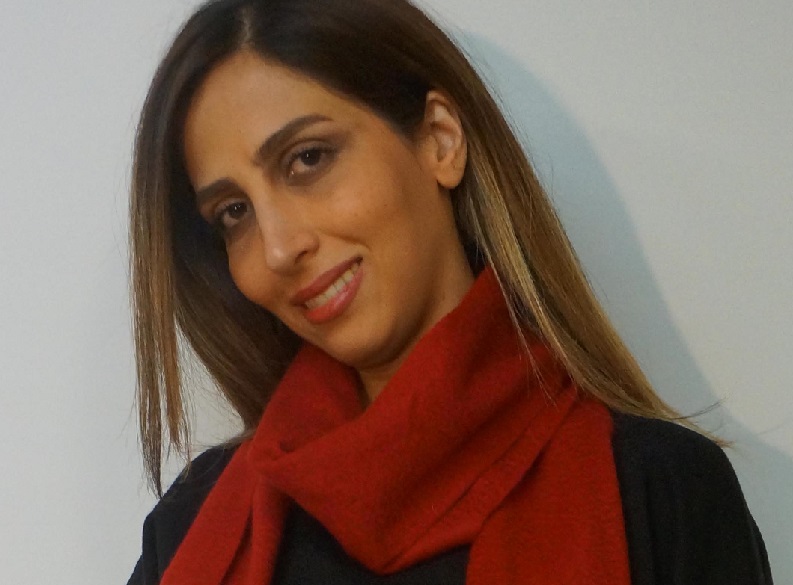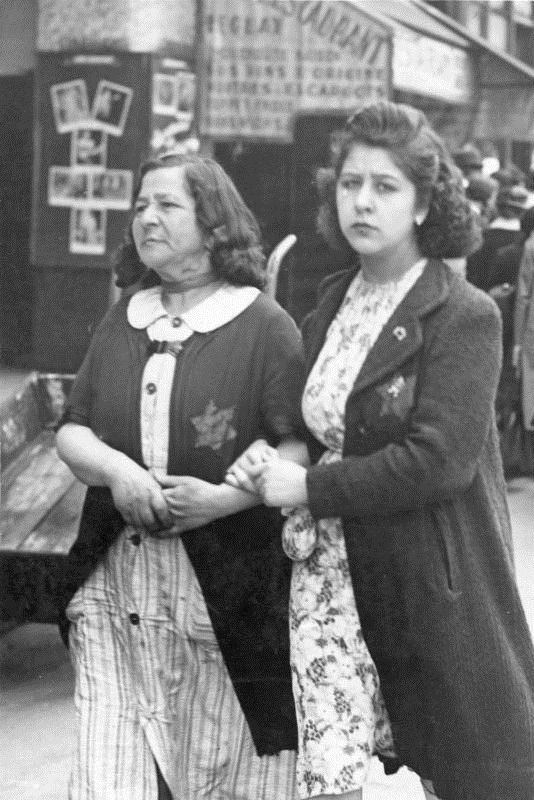Abdol Hossein Sardari: The Iranian consul who saved French Jews
Film-maker Mahdieh Zardiny wants recognition for the Muslim diplomat who saved hundreds from Nazi persecution
From concocting an elaborate ruse that misled top-ranking Nazis to falsifying official documents and passports, one Muslim diplomat literally risked everything to help save hundreds of Iranian Jews in Paris during the Second World War.
Despite this, the heroic efforts of Abdol Hossein Sardari largely faded into obscurity over the years, while attempts to have him officially recognised as Righteous Among the Nations at Yad Vashem have been thwarted by insufficient evidence.
Iranian-British filmmaker Mahdieh Zardiny made it her quest to reveal the full extent of his selfless bravery and has spent more than three years gathering new documents to submit to Yad Vashem, resulting in her intriguing 90-minute documentary, Sardari’s Enigma.
Get The Jewish News Daily Edition by email and never miss our top stories Free Sign Up
Zardiny, who studied documentary filmmaking at Royal Holloway University, London, reveals she came across the story of the unsung hero five years ago while interviewing a Holocaust survivor for her first documentary, Big Red J.
Like many others, Scarlett Epstein revealed how she and her family were assisted to safety from Nazi persecution thanks to the efforts of Sardari.
“I got curious and decided to try and find other people who were helped by him,” explains Zardiny, who is hoping to release the film later this year.
“I discovered he was a consul who saved Iranian and non-Iranian Jews, as well as non-Jews, during the Second World War in France. But there was only brief information available about him.”
In a bid to find out more, Zardiny travelled to the Holocaust Memorial Museum in Washington DC, as well as Switzerland and Germany to piece together any documents pertaining to Sardari.

A research trip to France also proved fruitful, because it was here that she discovered the police had meticulously monitored the courageous consul’s personal life and diplomatic activities, including his involvement in forging Iranian passports to help his desperate countrymen.
But perhaps most staggering, some documents revealed how the young diplomat had managed to persuade German officials that Iranian Jews were not the same as European Jews – and were not actually Jews at all.
He argued they should be afforded special protection in the same way as non-Jewish Iranians, who were considered “pure-blooded Aryans” according to Nazi ideology.
“He even came up with a name for them – ‘Djuguten’. There is no meaning for that and there is no real word,” says Zardiny. “He tried to persuade the Germans that Iranian Jews were different.
“He argued that their customs were the same as other Iranians, that they don’t speak Hebrew, only Farsi, and that they celebrated the same festivals. For that reason, he said there was no specific religion in Iran and that everybody was the same.”
At first, high-ranking German officials refused to accept his argument for exemption. In December 1942, Adolf Eichmann even denounced Sardari’s reasoning as “the usual Jewish tricks and attempts at camouflage”.
But Sardari persisted and continued writing letters arguing for the exemption of Djuguten, as well as hosting lavish banquets for Nazi officials at the Iranian consulate, based at Rue de Fortuny, in Paris.
While not immediately successful in convincing his German contacts, his charm offensive did afford him more time to help hundreds of Iranians living in Paris and delayed attempts to deport them to Nazi death camps.
He also began issuing hundreds of blank passports to help families travel across Europe back to Iran.
From her research, Zardiny suggests the number of passports held in Sardari’s safe was at least 500, although each passport could have been used for more than one person within a family – meaning a much greater number were actually saved by his actions.
Most incredibly, Sardari carried out his activities even after Iran signed a treaty with Britain and Russia in 1941 and he had been ordered by Tehran to return home. Stripped of his diplomatic immunity and status, he nevertheless stayed in France and persevered in helping save lives.
Yet Sardari has still not yet been recognised as Righteous Among The Nations.
According to Yad Vashem, there is insufficient evidence relating to how much the diplomat had put his own life at risk.
But in Zardiny’s mind, there is no question that Sardari placed himself in an extremely perilous situation to help others.
“To me it’s very obvious that his life was at risk, there’s no doubt about that.”
“He was in a country that was already occupied by the enemy, while his homeland, Iran, had declared war against Germany. He was working illegally in the embassy, because it had been closed.
“He acted as a consul and made up this name, Djuguten. He’s lying to the Germans and on the other hand, Iran doesn’t know that someone is in Paris illegally issuing passports. So he’s really in danger from both sides.
“To me it’s very obvious that his life was at risk, there’s no doubt about that.”
Zardiny’s research also revealed while Sardari helped Iranian Jews and non-Jews, he also helped Turk and Afghan nationals, as well as at least one British woman.
After the war, Sardari’s life was marred by tragedy, including the disappearance of his Chinese lover during the Chinese Civil War of 1948 and charges of embezzlement by the Iranian government.
In 1979, he was stripped of his pension and property during the Iranian Revolution and spent his last years living in England, where he died in 1983.
According to Zardiny, her film sheds new light on what happened during these later years and includes an interview with a close relative.
Excepting a posthumous recognition by the Simon Wiesenthal Centre in Los Angeles in 2004, the story of Sardari’s bravery and his personal life has remained mostly unknown – something that Zardiny hopes to readdress with her moving documentary.
“I hope to give him the recognition he deserves and keep his story alive,” concludes Zardiny, who has submitted her research to Yad Vashem.
“Sardari was someone who really tried to help people and didn’t care about their religion, their race or where they came from. For him, it was just about helping humanity.”

Thank you for helping to make Jewish News the leading source of news and opinion for the UK Jewish community. Today we're asking for your invaluable help to continue putting our community first in everything we do.
For as little as £5 a month you can help sustain the vital work we do in celebrating and standing up for Jewish life in Britain.
Jewish News holds our community together and keeps us connected. Like a synagogue, it’s where people turn to feel part of something bigger. It also proudly shows the rest of Britain the vibrancy and rich culture of modern Jewish life.
You can make a quick and easy one-off or monthly contribution of £5, £10, £20 or any other sum you’re comfortable with.
100% of your donation will help us continue celebrating our community, in all its dynamic diversity...
Engaging
Being a community platform means so much more than producing a newspaper and website. One of our proudest roles is media partnering with our invaluable charities to amplify the outstanding work they do to help us all.
Celebrating
There’s no shortage of oys in the world but Jewish News takes every opportunity to celebrate the joys too, through projects like Night of Heroes, 40 Under 40 and other compelling countdowns that make the community kvell with pride.
Pioneering
In the first collaboration between media outlets from different faiths, Jewish News worked with British Muslim TV and Church Times to produce a list of young activists leading the way on interfaith understanding.
Campaigning
Royal Mail issued a stamp honouring Holocaust hero Sir Nicholas Winton after a Jewish News campaign attracted more than 100,000 backers. Jewish Newsalso produces special editions of the paper highlighting pressing issues including mental health and Holocaust remembrance.
Easy access
In an age when news is readily accessible, Jewish News provides high-quality content free online and offline, removing any financial barriers to connecting people.
Voice of our community to wider society
The Jewish News team regularly appears on TV, radio and on the pages of the national press to comment on stories about the Jewish community. Easy access to the paper on the streets of London also means Jewish News provides an invaluable window into the community for the country at large.
We hope you agree all this is worth preserving.
-
By Brigit Grant
-
By Laurent Vaughan - Senior Associate (Bishop & Sewell Solicitors)
-
By Laurent Vaughan - Senior Associate (Bishop & Sewell Solicitors)
-
By Laurent Vaughan - Senior Associate (Bishop & Sewell Solicitors)
-
By Laurent Vaughan - Senior Associate (Bishop & Sewell Solicitors)






















